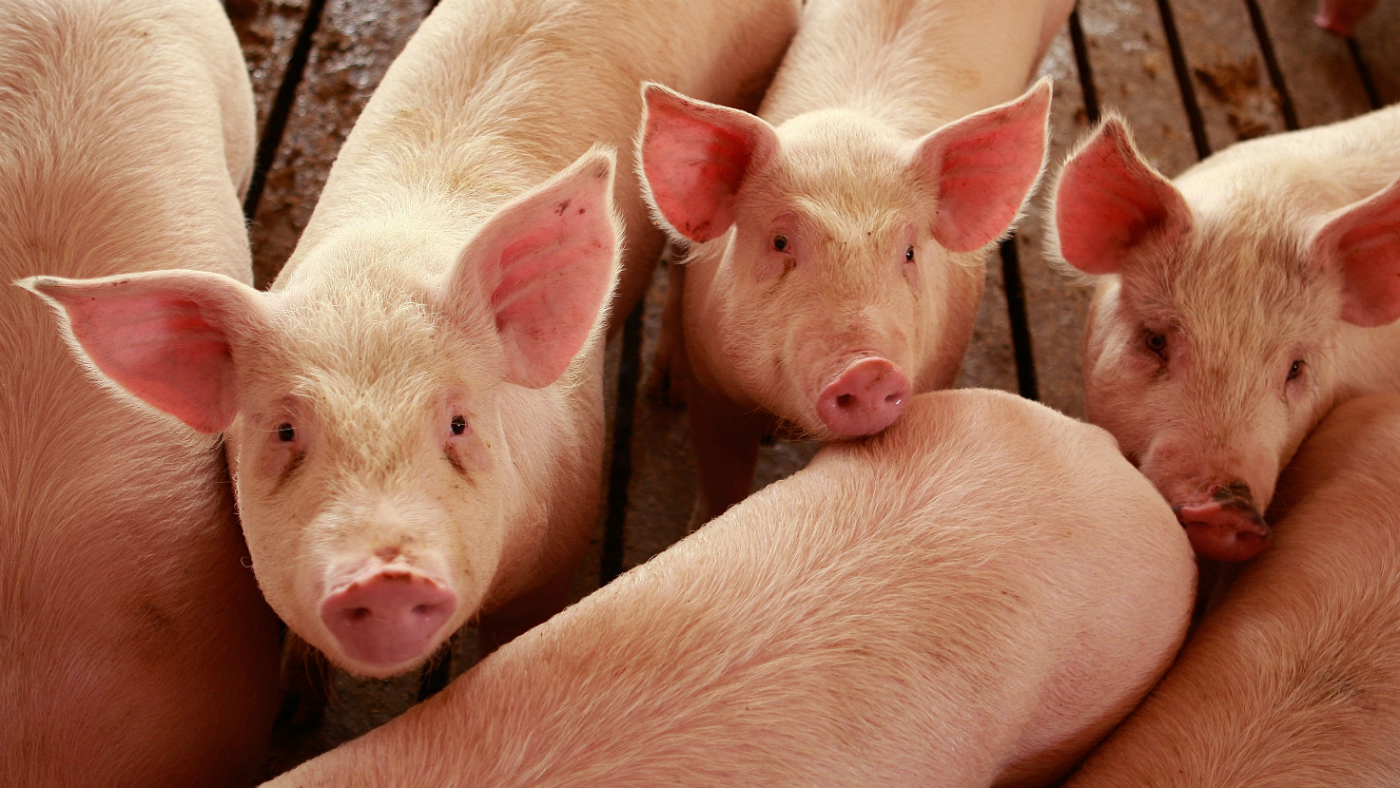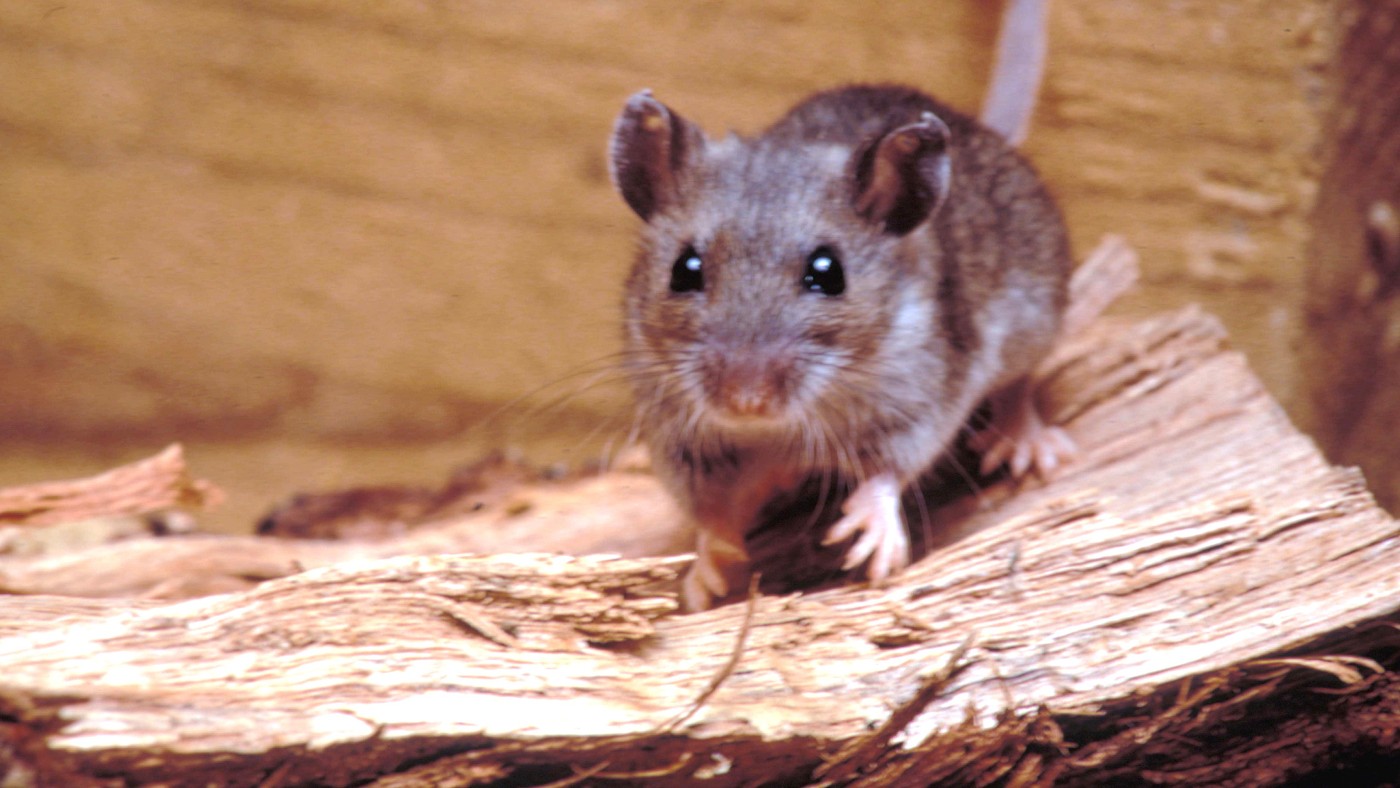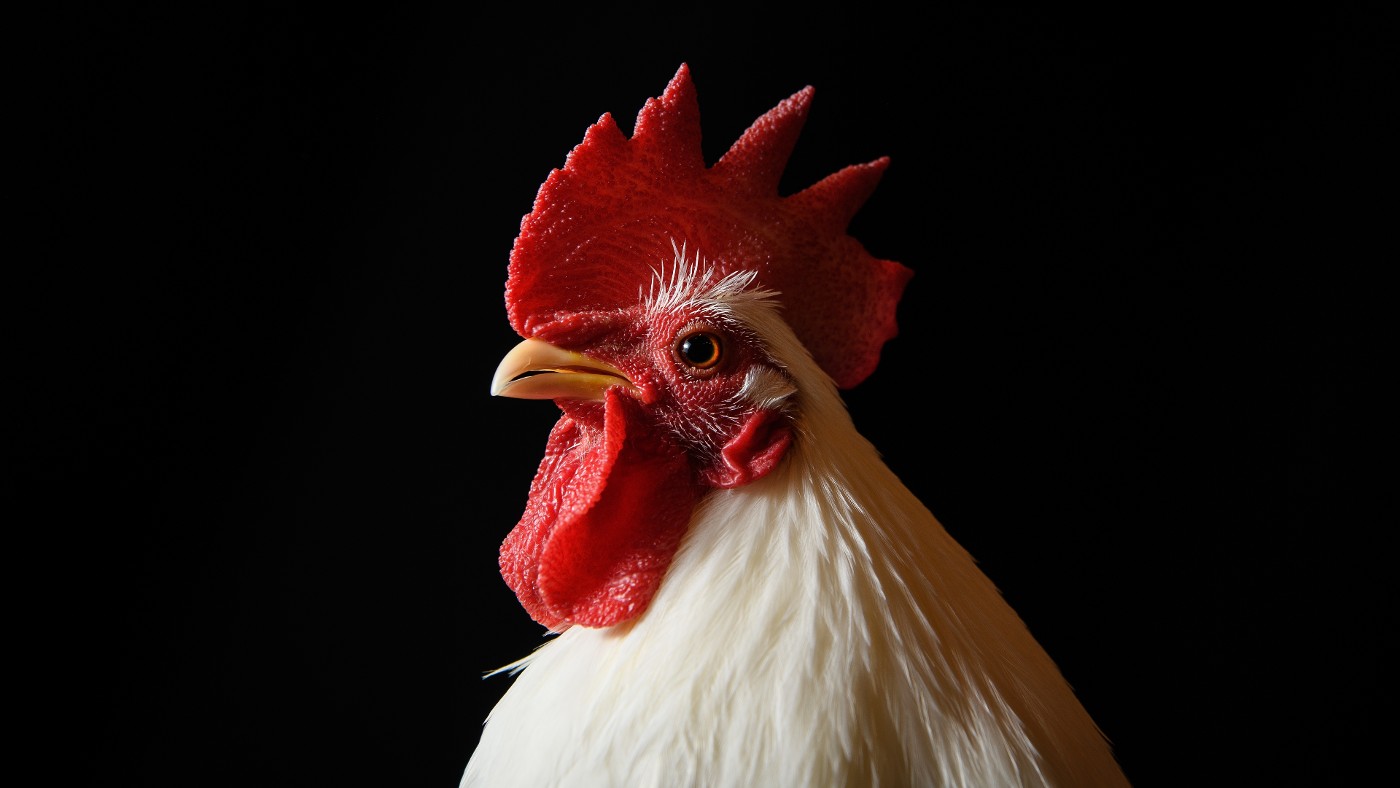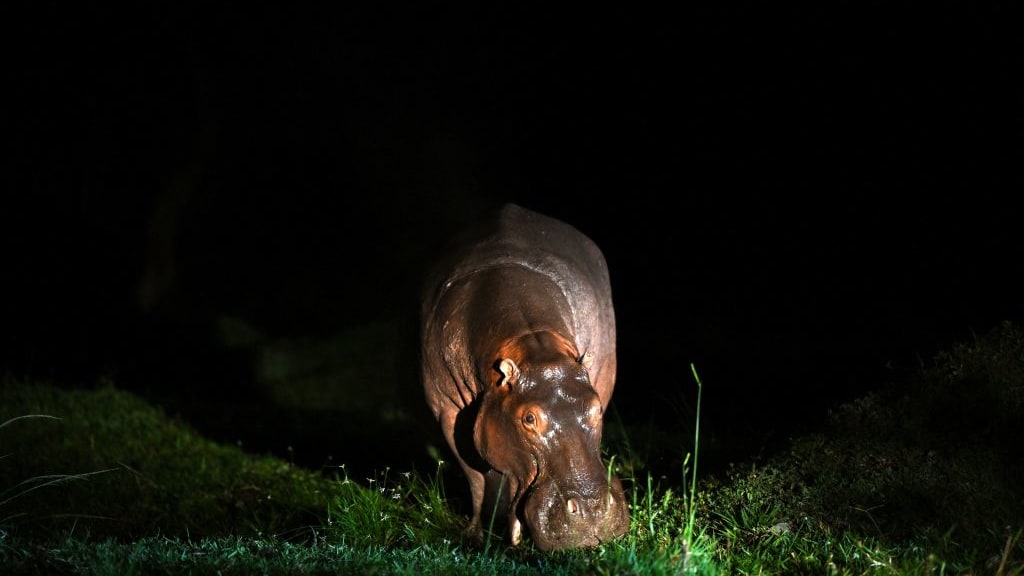Why are scientists genetically editing pigs?
Breakthrough in making the animals resistant to disease poses ethical and legal dilemma

A free daily email with the biggest news stories of the day – and the best features from TheWeek.com
You are now subscribed
Your newsletter sign-up was successful
Scottish scientists from the same institute that created Dolly the Sheep have genetically modified pigs that are resistant to one of the world’s costliest livestock diseases.
But the breakthrough by scientists from the University of Edinburgh “poses a headache for ministers, because the technology for carrying out gene surgery on livestock is advancing so rapidly that public opinion and the law have not caught up”, says The Times.
What disease are the scientists targeting?
The Week
Escape your echo chamber. Get the facts behind the news, plus analysis from multiple perspectives.

Sign up for The Week's Free Newsletters
From our morning news briefing to a weekly Good News Newsletter, get the best of The Week delivered directly to your inbox.
From our morning news briefing to a weekly Good News Newsletter, get the best of The Week delivered directly to your inbox.
The new pigs appear to be completely resistant to the porcine reproductive and respiratory syndrome (PRRS) virus, “which causes the lungs of adult pigs to clog up with immune cells and can ‘mummify’ piglets in the womb”, says The Times. PRRS is endemic across the world and there is no viable treatment, while vaccines are ineffective. Dealing with an outbreak in a herd of 500 breeding pigs costs an average of around £145,000.
The team of scientists used the Crispr gene editing technique “to remove a small section of the CD163 gene, which carries a receptor that the virus likes to latch on to”, says The Daily Telegraph.
After exposing the pigs to the virus, “they found none became ill and blood tests showed no trace of the infection”, the newspaper reports.
What’s different about the pigs?
A free daily email with the biggest news stories of the day – and the best features from TheWeek.com
Unlike genetically modified livestock, which contain small amounts of genetic material from other species, the pigs have simply had a short section of their DNA taken out in order to give them immunity to the virus.
“It’s important for the public to know that this animal is not what we call ‘transgenic’,” Christine Tait-Burkard, lead author of the study, said. “It doesn’t contain any foreign DNA. It’s 100% pig DNA in there still.”
What are the potential repercussions?
The breakthrough means that the first genetically engineered sausages and bacon could, in theory, find their way onto breakfast tables by the early 2020s.
Environment Secretary Michael Gove has already signalled that genetically modified animals could be sold in Britain once the country quits the European Union.
But “it remains unclear whether gene-edited food will become a common sight in shops, or whether it will face a regulatory backlash and be spurned by consumers”, says The Times.
The US “has paved the way by approving a salmon engineered to grow twice as fast as normal, which recently became the first GM animal ruled safe to eat”, adds the Daily Mirror.
Jonathan Lightner, chief scientific officer for animal genetics company Genus, said: “These results are very exciting and further underscore the potential, through gene editing, to provide incredible benefits to the global pork industry, and society as a whole, by improving animal health.”
What are the ethical concerns?
Genetically modified animals are banned from the food chain in the UK and throughout Europe, “but it is not clear whether these regulations would apply to gene-edited animals, since the technology and resultant genetic changes are different”, says The Guardian.
“These results are exciting but it will still likely be several years before we’re eating bacon sandwiches from PRRS-resistant pigs,” said researcher Tait-Burkard.
“First and foremost we need broader public discussion on the acceptability of gene-edited meat entering our food chain, to help inform political leaders on how these techniques should be regulated.”
Darren Griffin, professor of genetics at the University of Kent, told The Guardian: “In general terms there is still public concern about gene editing in the food that we consume, but this needs to be countered by hard evidence from well-designed studies. Alarmist titles such as ‘Frankenstein foods’ should play no part in the discussion.”
-
 6 of the world’s most accessible destinations
6 of the world’s most accessible destinationsThe Week Recommends Experience all of Berlin, Singapore and Sydney
-
 How the FCC’s ‘equal time’ rule works
How the FCC’s ‘equal time’ rule worksIn the Spotlight The law is at the heart of the Colbert-CBS conflict
-
 What is the endgame in the DHS shutdown?
What is the endgame in the DHS shutdown?Today’s Big Question Democrats want to rein in ICE’s immigration crackdown
-
 Mouse keeps tidying up man's shed
Mouse keeps tidying up man's shedTall Tales And other stories from the stranger side of life
-
 Mystic's 'terrifying' 2024 predictions
Mystic's 'terrifying' 2024 predictionsTall Tales And other stories from the stranger side of life
-
 White Easter more likely than a white Christmas
White Easter more likely than a white ChristmasTall Tales And other stories from the stranger side of life
-
 Middle-class chickens pampered at 'hotels'
Middle-class chickens pampered at 'hotels'Tall Tales And other stories from the stranger side of life
-
 The U.S. veterinarian shortage crisis
The U.S. veterinarian shortage crisisSpeed Read With an anticipated shortage of 15,000 vets by 2030, it will be harder to get care for pets
-
 Woman dies days after knocking inside her coffin
Woman dies days after knocking inside her coffinfeature And other stories from the stranger side of life
-
 Controversy-stricken SeaWorld opens first park outside of United States
Controversy-stricken SeaWorld opens first park outside of United StatesSpeed Read
-
 Colombia's 'cocaine hippos': A problem too big to ignore
Colombia's 'cocaine hippos': A problem too big to ignoreSpeed Read Descendants of four hippos that once belonged to drug kingpin Pablo Escobar are wreaking havoc on the country